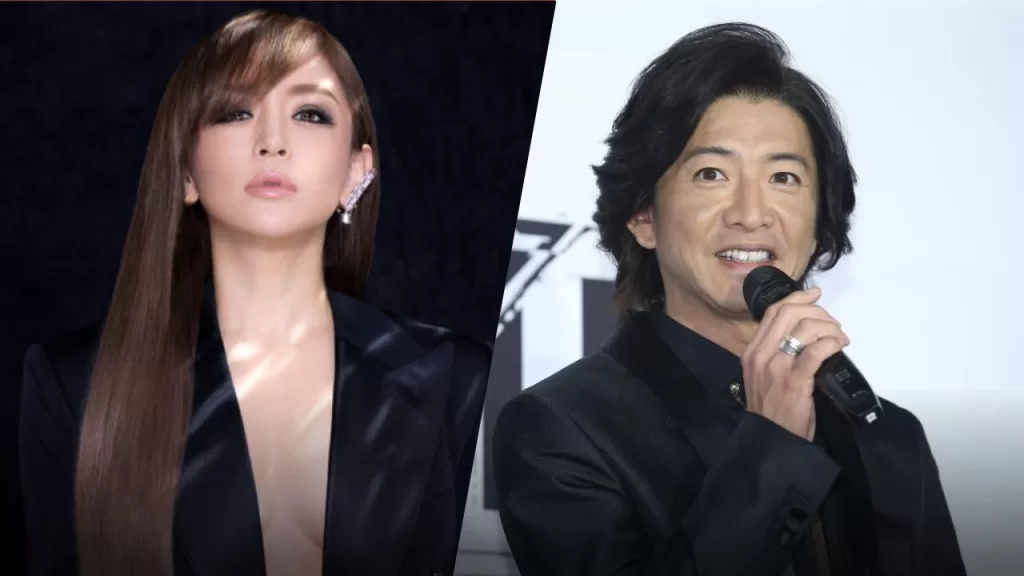15 Japanese Celebs With the Highest Net Worths Will Blow Your Mind
Japan has produced many rich and famous celebrities over the years, with some boasting massive net worths reaching into the hundreds of millions. From music superstars like Ayumi Hamasaki to iconic actors such as Takuya Kimura, Japan’s entertainment industry has minted its share of wealthy individuals.
This article will explore the top 15 richest Japanese celebrities and their jaw-dropping net worths.

1. Ayumi Hamasaki – $200 million
Japanese singer, songwriter, record producer and actress. One of Japan’s biggest pop stars with record sales over 50 million. (Source: Celebrity Net Worth)
2. Takuya Kimura – $200 million
Japanese actor and singer. He is considered one of the most popular and influential actors in Japan. He is also a member of the hit J-pop group SMAP. (Source: Stars Offline)
3. Masaharu Fukuyama – $175 million
Japanese singer, songwriter, musician and actor. He is one of Japan’s most successful entertainers with record sales of over 15 million. (Source: Wealthy Gorilla)
4. Namie Amuro – $100 million
Japanese singer who was an influential figure in J-pop during the 1990s. Dubbed the “Queen of J-pop” during her peak years. (Source: Stars Offline)
5. Satoshi Ohno – $112 million
Japanese idol, actor, singer and radio host. He is the lead vocalist and leader of the popular J-pop boy band Arashi. (Source: Gazette Review)
6. Hikaru Utada – $55 million
Japanese-American singer and songwriter. Her albums have sold over 52 million records worldwide, making her one of Japan’s best-selling artists. (Source: Celebrity Net Worth)
7. Gackt – $45 million
Japanese musician, singer, songwriter and actor. He has sold over 10 million albums and is widely considered an icon in Japan’s visual kei movement. (Source: Stars Offline)
8. Ken Watanabe – $30 million
Japanese actor known for his roles in Hollywood films like The Last Samurai, Inception and Godzilla. (Source: Celebrity Net Worth)
9. Shingo Katori – $23 million
Japanese singer, actor, television personality and artist. Member of the popular J-pop boy band SMAP. (Source: Stars Gab)
10. Kyary Pamyu Pamyu – $10 million
Japanese singer and model. Known for her outlandish fashion and unique music videos. (Source: Gazette Review)
11. Hiroshi Abe – $15 million
Japanese actor and musician. He has appeared in over 50 films including Godzilla 2000 and Goemon. (Source: Stars Offline)
12. Ryuhei Matsuda – $12 million
Japanese actor and musician. He has won multiple Japanese Academy Awards for his performances. (Source: Famous People Today)
13. Joe Odagiri – $9 million
Japanese actor and musician who has appeared in over 30 films. He played the young Yakuza boss in Wong Kar-wai’s My Blueberry Nights. (Source: Gazette Review)
14. Misaki Ito – $8 million
Retired professional tennis player from Japan who won the 1989 Australian Open women’s singles title. (Source: Stars Offline)
15. Kazushige Nagashima – $50 million
Retired Japanese professional baseball player and manager. He had a successful playing career and currently manages the Chunichi Dragons. (Source: The Richest)
Stories You Will Also Like
Tourist Arrivals to Japan Plunge Amid Rumors of July 2025 Disaster
Japan Unveils Solar Super Panel Project Targeting Power Output Equal to 20 Nuclear Reactors
Honda Tadakatsu Japans Legendary Samurai Who Fought 55 Battles Without Injury